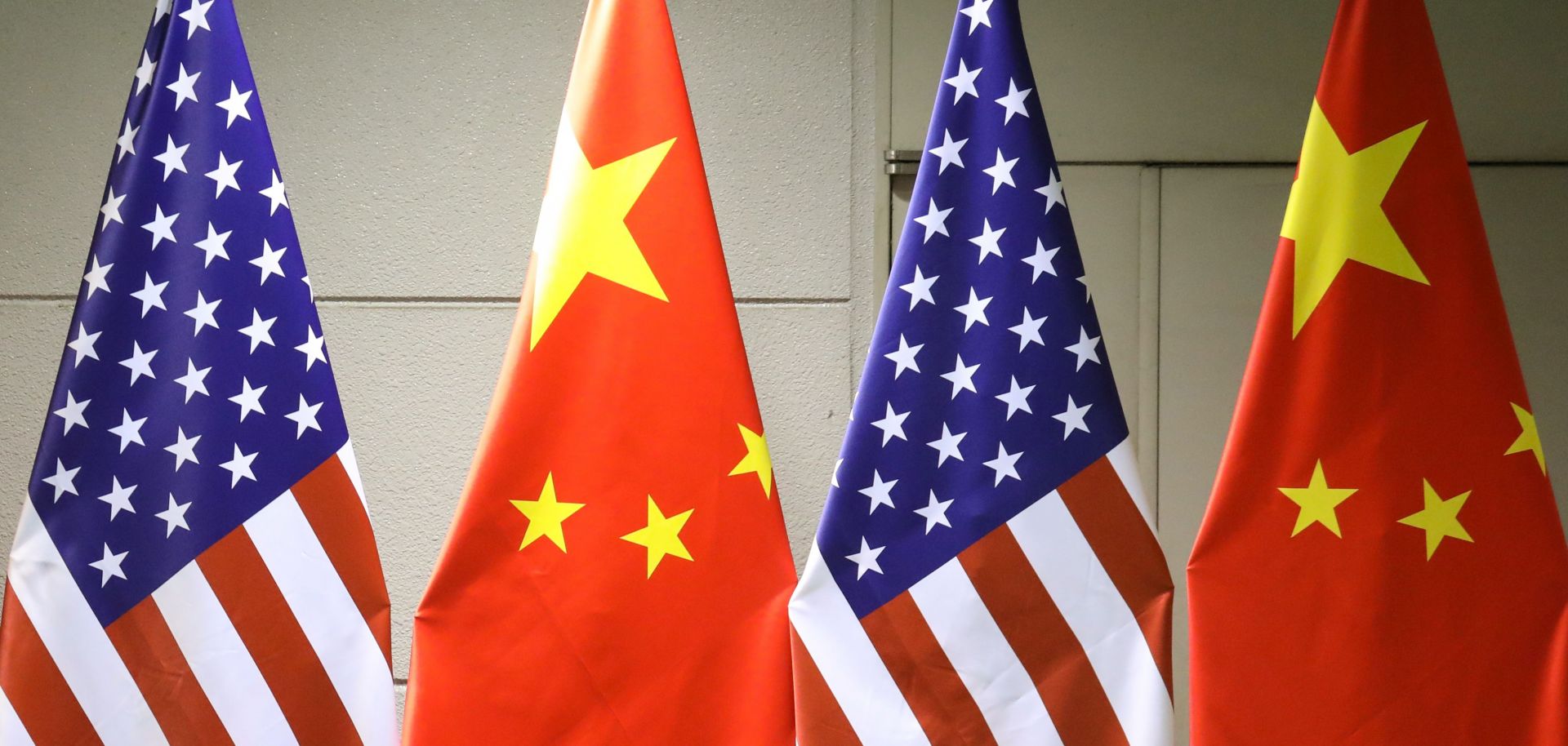COLUMNS
By Mixing Tech and Human Rights Sanctions on China, the White House Crosses the Rubicon

Nov 1, 2019 | 09:30 GMT

The national flags of China and the United States.
(LUDOVIC MARIN/AFP via Getty Images)
Highlights
- As the United States and China make a fresh attempt at a trade truce, a glaring omission from the so-called Phase 1 talks is the issue of whether the White House will ease export restrictions on American tech suppliers to Chinese tech giant Huawei.
- Even as the Trump White House may have originally intended to use at least parts of the Huawei blacklisting as a bargaining chip in trade negotiations, the window for compromise is closing, spelling prolonged uncertainty for U.S. tech companies with heavy exposure to China.
- The reduced room for compromise is due in part to the trade and tech wars blending into human rights concerns, as complex global supply chains expose a number of Western and Chinese companies to accusations of facilitating Chinese digital authoritarianism.
- From Hong Kong to Xinjiang to Taiwan, multiple flashpoints in the Chinese periphery will favor policy hawks on China over the doves in Washington. At the same time, the theme of Chinese censorship and appropriation of American values in pop culture is drawing a broader swath of the American public into recognizing "the China issue."
- In this political climate, human rights-related sanctions against a growing list of strategic tech targets in China cannot easily be walked back.
Subscribe Now
SubscribeAlready have an account?
